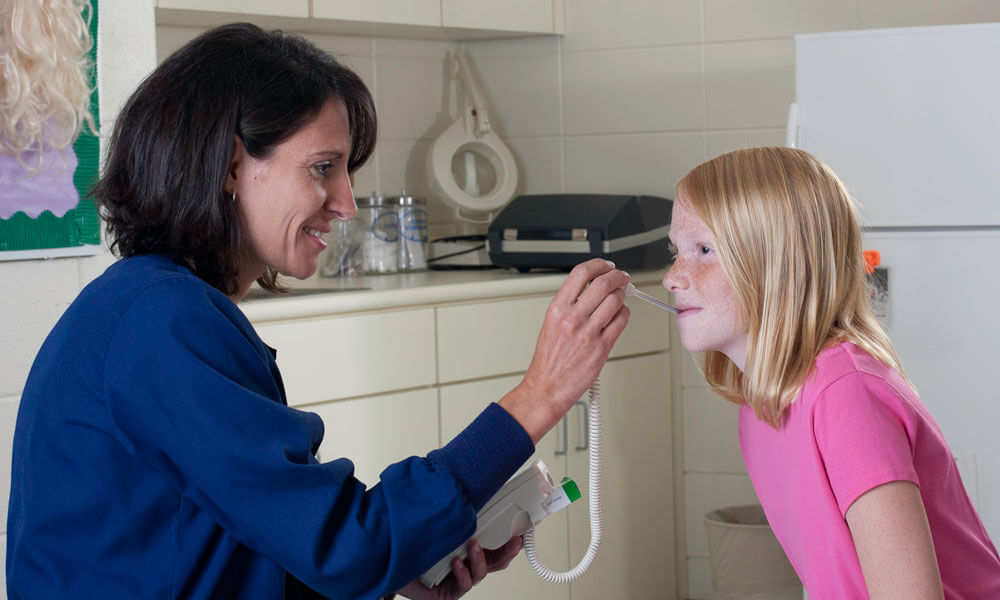Children spend roughly forty hours every week in school and have the same health demands as at home. If a kid can obtain proper drugs and treatments at school, they are less likely to remain home and, as a result, do better academically than if their school does not provide nurse services.
Fortunately, most schools have nurses on staff—typically registered nurses or licensed practical nurses who spend part of their day caring for students’ medical needs.
This guide will go over the most common duties of school nurses, how much they earn, what countries pay them the most, and how to become one.
What do school nurses do?
School nurses help students stay healthy in class. Their duties include:
- Educating students about staying safe and healthy.
- Dealing with sick students.
- Collaborating with teachers and parents to create an effective health plan for the entire school population.
School nurses also play a crucial role in preventing illness. They evaluate children’s health status and refer them to resources that can help, such as social workers or counsellors. They use screenings to identify at-risk students for early interventions that help children succeed in and out of school. School nurses also coordinate responses with other health care team members when medical emergencies occur at school.
Responsibilities
Below are some of the responsibilities of school nurses:
- Administering first aid and care to students referred by staff or self-referred until they can return to classes or are transferred to the care of a parent, guardian, physician, or hospital.
- Coordinates occasional health screenings and ensures that students’ parents provide follow-up treatment.
- Acts as a child’s health advocate and examines student health needs.
- Take on management and planning responsibilities for acute, chronic, and emergency health conditions, including referrals and follow-up.
- Educate employees on CPR and other life-saving techniques.
- Teach COVID-19 preventive techniques to staff, students, parents, and community partners.
- Assess pupils’ COVID-19 symptoms and exposure.
- Provide health education lessons (for example, sex education) to students in individual and group settings.
- Assist families in acquiring additional healthcare and health insurance.
- Contributes to infectious disease control by implementing programs for student vaccinations and managing suspected and confirmed infectious diseases.
- Keep current and correct records following school policy.
Working conditions
Overall, there’s nothing like a stress-free nursing career. However, certain specialities, like school nursing, don’t always involve high-risk scenarios and have better-defined timetables, resulting in less stressful jobs.
For example, school nurses are generally not expected to be on call at all times. They are also not required to work overtime like nurses working in hospitals. They are not expected to labour at night and typically don’t work when students are on holiday. School surroundings are often less risky than hospital settings, where catching infectious illnesses is greater.

How can you become a school nurse?
The steps to becoming a school are primarily similar to other nursing careers; they are:
Earn a Bachelor of Science in Nursing (BSN)
Earning your BSN degree from an accredited program is the first step toward becoming a school nurse. Depending on the duration of the program, earning a BSN might take from 2-4 years. However, registered nurses (RNs) can accelerate this process by enrolling in an RN to BSN program.
It is important to note that an Associate’s Degree in Nursing (ADN) will not qualify for employment as a school nurse.
Obtain Licensure as a Registered Nurse (RN)
After earning your BSN, you must pass the National Council Licensure Examination for RNs (NCLEX-RN), or the equivalent in your country. The NCLEX-RN is an exam designed to assess nursing school graduates’ abilities. Nurses who already have an RN licence can bypass this step.
Passing the exam qualifies you to apply for licensure in any state you want to practice.
Gain Clinical Experience
Before working in the school environment, most employers prefer nurses to have clinical experience. This enables candidates to improve their soft skills and become self-sufficient in their abilities.
Get a Job
The final stage in becoming a school nurse is getting a job. According to the NurseJournal, the job growth rate for school nurses’ is predicted to climb by 9% in the next decade.
Most schools prefer to find and recruit school nurses using online labour platforms, such as Velju, which links employers to candidates to get jobs without application.
Skills and requirements
It would be best if you were an empath to deal with students daily. Children take slight injuries far more seriously than adults do, and the care that follows needs knowledge, compassion and understanding.
If there are issues in their homes, children will not always want to open up. Instead, they may experience or report symptoms of a non-existent sickness that is essentially a cry for help.
Here are other skills required of every school nurse:
- Quick-witted
- Excellent decision-making
- Excellent communicator and hard worker
- Interpersonal skills
- Emotional Stability
- Adaptability
- Physical stamina
- Problem-solving skills

How much does a school nurse make?
A school nurse’s salary varies based on several things, including location, experience, and level of education and certification. However, the average annual compensation for a school nurse is $55,278 in the US and is £33,088 in the UK.
Obtaining a Master’s degree, as well as other certifications, might help you advance your career while increasing your earnings.
Highest paying countries for school nurses
Below are the top-paying countries for school nurses, and their average annual salaries, in no particular order:
- United States: $55,278 (USD)
- United Kingdom: £33,088
- Luxembourg: €45 480 (EUR)
- Canada: $79,113 (CAD)
- Australia: $85051 (AUD)
- Switzerland: CHF 72, 926
Häufig gestellte Fragen
Is a school nurse really a nurse?
Yes, a school nurse is a registered nurse, with a majority having clinical experience.
What type of nurses are school nurses?
School nurses are Specialist Community Public Health Nurses (SCPHN).




